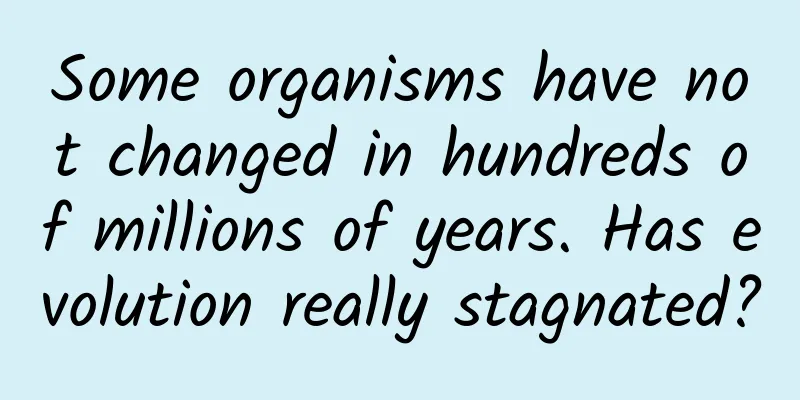Oops! I forgot! Don’t worry, maybe forgetting is not a bad thing?

|
□ Wang Mingyu In the cognitive world, human memory and forgetting are two eternal themes. We pursue long-term memory, but often struggle in the swamp of forgetfulness. However, the latest scientific research has overturned our traditional understanding of forgetting, revealing that forgetting is not a bad thing, but an active learning strategy that helps the brain effectively process sensory information and summarize and integrate knowledge. This view was recently elaborated on the website of the British "New Scientist". From a certain perspective, forgetting may be a self-protection mechanism of the brain. This seemingly passive process is actually a positive means taken by the brain to operate more efficiently. The brain's memory system is not infinite. It must selectively retain those memories that have an important impact on our lives and forget those irrelevant information to avoid information overload. This selective natural forgetting can help us better adapt to complex and changing environments, so as not to be troubled by irrelevant information. Copyright images in the gallery. Reprinting and using them may lead to copyright disputes. The process of memory formation and forgetting is actually a dynamic information processing process. When encountering new things, our brain will convert them into information, and then store this information in the memory bank through changes in neural network connections. The hippocampus located on the inner side of the temporal lobe consolidates short-term memory and then stores it in the prefrontal cortex for conversion into long-term memory. In this process, not all information will be completely preserved. Some information has little to do with daily life, or cannot be deeply processed and consolidated due to distraction, and is eventually forgotten. In the paper published on the New Scientist website, Edwin Robertson of the University of Glasgow in the UK said that having super-detailed memory is very valuable. This group has an enviable photographic memory and can always find clues to things, but this is not conducive to people generalizing about the situation, and remembering all events and emotions in a long life would be disastrous. Therefore, forgetting some details is beneficial, but it is not a complete loss of memory, but a fading of memory. Some studies have shown that even if we forget a specific event, the brain still retains information related to the event. This information may be reactivated at some point in the future when encountering a similar situation and affect future decisions. Therefore, forgetting is not the disappearance of memory, but a kind of memory transformation and reshaping. Copyright images in the gallery. Reprinting and using them may lead to copyright disputes. Forgetting is also an active learning strategy. The human brain has strong plasticity, and the way the neural network is connected can be changed through learning and training. When we repeatedly learn and practice a skill, the related neural network in the brain will gradually strengthen and form a stable memory. However, if we do not use a skill for a long time, the related neural network will gradually weaken. This kind of forgetting is not a bad thing. It can help the brain free up space to learn new knowledge and skills. Forgetting is also closely related to the predictability of the environment. The human brain tends to automatically ignore predictable events, but pays more attention to unpredictable events. This is because in the process of human evolution, unpredictable events often mean more survival challenges, requiring the brain to invest a lot of resources to process. Therefore, when faced with predictable events, our brain may actively choose to forget in order to save cognitive resources and better deal with the unknown. Although forgetting plays an important role in learning and adapting to the environment, we still need to pay attention to the problem of memory loss. For people with such problems, memory loss may be due to illness, aging or other factors, so they need to actively seek medical help to improve memory function through medication, training or other means. In future research, scientists will continue to explore the mysteries between forgetting, memory and brain structure, in order to gain a deeper understanding of the working mechanism of the brain and find effective ways to improve memory function. In this process, we will find more about the positive effects of forgetting and how to use forgetting to optimize our study, work and life. (The author is the attending physician of the Department of Neurosurgery of the First Hospital of Shanxi Medical University and a member of the Health Communication Working Committee of the Chinese Medical Doctor Association) |
Recommend
[Smart Farmers] Focus on Document No. 1丨“Operation Manual” for Comprehensive Rural Revitalization: Keep the Bottom Line, Promote Revitalization, and Strengthen Guarantees
[Smart Farmers] Focus on Document No. 1丨“Operatio...
Interesting fact: Why can’t humans synthesize vitamins?
Anyone who knows a little about biology knows tha...
Tips on advertising materials and copywriting at Station B!
"Suddenly, as if overnight, a spring breeze ...
Ski resorts are open, beware of inhaling powder snow into your mouth and nose! In severe cases, it can cause suffocation!
Science Times reporter epic As winter approaches,...
If you don’t clean these 4 places on the rice cooker, be careful not to eat “cockroach steamed rice”!
When I was surfing the Internet some time ago, I ...
What are the mainstream promotion methods of Xiaohongshu?
Recently, when my colleagues were working on Xiao...
Jian Feng teaches: How to acquire customers in WeChat ecosystem at low cost
Jian Feng teaches in person: How to acquire custo...
A brief analysis of Tmall’s operating “routines” during the 2017 “Double Eleven” event!
Tmall Double Eleven 2017 is coming soon. During t...
New sound-sensing fabric - this "sweater" can hear your heartbeat
Recently, engineers from the Massachusetts Instit...
The best way to get the width and height of View in Android
In Android, there are usually multiple ways to ge...
The CTO behind a technical team of 1,000 people: CTO training is far more than technical training
[51CTO.com original article] While most technical...
How to awaken the product’s communication power? Share 6 methods!
Once the product is made, the big challenge is ho...
Redefining the new standard of smart hardcore off-road, Fangcheng Baobao 8 has completely changed the off-road vehicle industry
The off-road vehicle community may really be abou...
The underlying logic of information flow advertising
In fact, when I first entered the industry, I onl...
Home Guidelines for People Infected with COVID-19 (First Edition)
Source: National Health Commission official websi...









